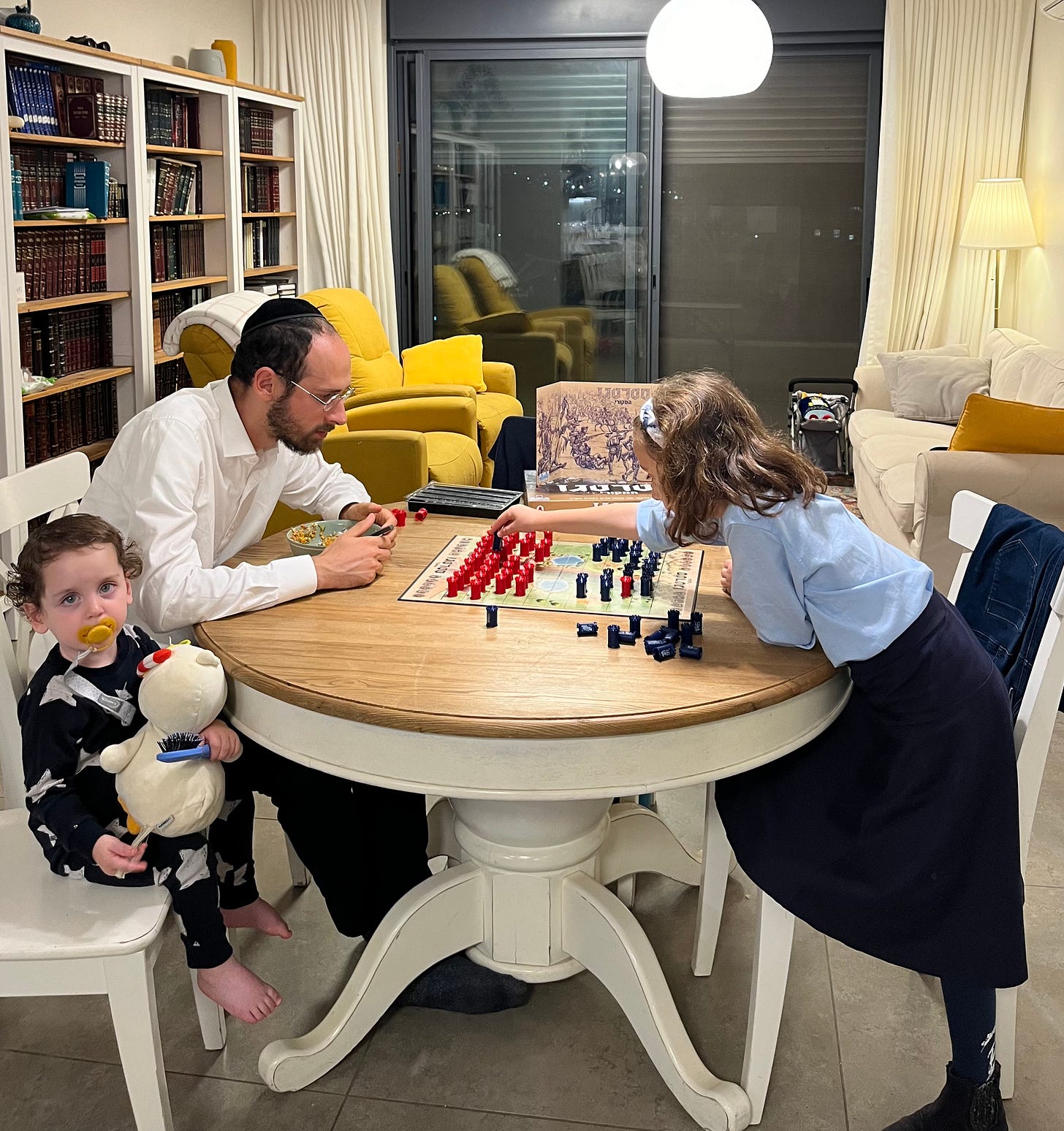
Dear Healthy Jew,
In wars against terrorists, everyone is a soldier.
For millions of civilians near and far from the war zone, the primary enemies are fear, shock, anxiety, and stress. Hamas seeks to terrorize a thousand times more victims than they ever hope to kill, hurt, or kidnap.
Bullets brutally kill bodies; terror subtly kills minds and hearts. Terror teaches that the world is a bad place, that life is more pain than joy. When it’s too much to process, it morphs into permanent stress of a thousand colors and degrees. PTSD.
The Distractions of Drama
Even more subtly, and perhaps more widespread now, terror distracts minds and hearts from life. Instead of tending to myself, my family, and community, the addictive drama pulls me away from today’s reality, constantly firing questions that I can’t possibly answer, and bombarding me with feelings too intense to process.
Will the IDF finish off Hamas? When will they enter Gaza on foot? Will they get the hostages back? Will lots of our soldiers die? Will lots of innocent Gazan civilians die? What are they doing now to the poor hostages? How are the families of the thousands of dead and wounded? What about those who don’t even know yet what happened to their loved ones? Will Hezbollah join in? Will they overrun Northern Israel while the army is occupied in Gaza? Will violence explode in the entire country - even reaching peaceful Bet Shemesh? Will terrorists roam around our neighborhood? What if they start breaking down our door and there’s nobody to call to fight them? What if they climb up the building’s side and climb in through the unlocked porch door? Should I fight them with a knife or jump out a window?
For today, all this is drama. Negative drama, but drama nonetheless. It’s all part of the enemy’s plan. They want to stop us from living, caring, connecting, being.
The solution begins by importing the battlefield into our own minds and hearts. For the millions of us huddled in our homes, the fighting isn’t happening anywhere “out there,” but in the hundreds of little choices we make each day.
We win the war when we don’t stop life every five minutes to check the news, when we smile at strangers who have fear all over their faces, when we play with our scared children, when we’re hard at work in Torah study and prayer, when we go out for a refreshing run, and when we get a good night’s sleep.
Now is the time to take care of our health: not only to make good living possible, but because that’s where all good choices begin. Then we can expand outwards to care for and connect with other scared people, near and far. Our families and communities need us to be healthy and whole so that we can be there for them.
On the Battlefield
Here are some practical strategies we can use in our personal wars against terror:
1. Pray
As I explained last week, the Torah instructs to cry to God for help whenever we’re distressed. Taking refuge in God’s care is calming and centering for the body, mind, and spirit. This cry-prayer doesn’t need to be long, intense, or dramatic. What matters is sincerity and faith.
2. Move Well
Vigorous exercise is key to processing and adapting to stressful situations. The enemy wants to paralyze our minds and hearts, to have us frozen on the couch doom-scrolling all night long. So get out for a brisk walk, or even a run. Energetically moving the body gets us off the screens and out of our heads, jumping right into reality.
To learn more, check out Move Well, especially these posts:
3. Eat Well
With all the worry and grief, it’s so easy to ignore our basic needs by either not eating enough or mindlessly binging on food-like substances. A great way to fight terror is by investing time and money in eating balanced meals of real food. They want to kill us; let’s respond by living well, on purpose.
4. Be Well
We’re afraid of the future, and horrified by the recent past. We can find serenity and balance by returning to the present moment, paying attention and appreciating this gift of life. If we’re feeling anxious or afraid, we can calmly observe the feelings in our body and watch them in our minds.
There are many techniques for finding and knowing the present moment. One classic is to sit still, with the back straight (but not forced or stuck), and watch the breath of life enter and exit the body. Another favorite is stopping whatever you’re doing, just for a moment, and saying out loud: “This is it.”
5. Relax
It can feel wrong to loosen up with all the pain and suffering around us. But who are you helping by always remaining tense and occupied? Purposeful relaxation isn’t an escape, but proactively taking care of yourself.
Perhaps now isn’t the time to head out on a dream vacation in the mountains. But there are plenty of less dramatic ways to loosen up: a good book, walk in the park, even a glass of wine.
6. Let Go
With all the external and internal distractions, many people are less focused and productive, and more irritated and impatient, than during peaceful times. (I certainly am!) We’re trying to get ourselves back together, and that begins by letting go of expectations of being perfectly focused and productive.
These are hard times, so let’s give ourselves - and others - lots of slack. Growth always stems from accepting current shortcomings: not forcing ourselves to be people that we’re not.
There are many other methods to fight terror.
from sent her Substack subscribers a great list of ways to deal with stress and anxiety, which she posted here on Substack Notes. Among other things, she suggests limiting media consumption, fact-checking worries, and journaling.Another fellow Substack writer,
from , has another great idea: meaningful music can be part of the war effort, as a “center of healing, vitality, and connectedness.”One last suggestion. Please don’t try everything that I suggested: that would just be another source of stress and anxiety. But do something to play your part in Israel’s war for survival.
One Question: What are you doing to find health and wellness during the current crisis?
Thank you for reading Healthy Jew.
Here are 2 great paths to continue the journey:
Also check out this intro and index to explore hundreds of posts about our 3 Healthy Jew topics: Wellness with Wisdom, Land of Life (Israel), and Sensible Spirituality.
Finally, always feel free to reach out here with any comments, questions, or complaints:
I look forward to hearing from you!
Be well,
Rabbi Shmuel Chaim Naiman







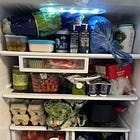
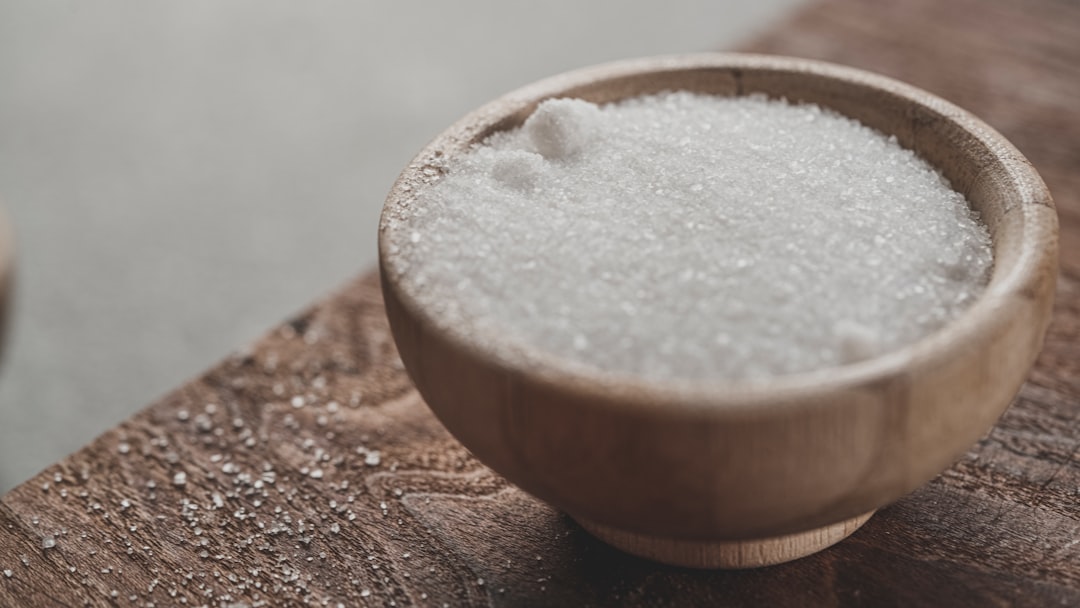
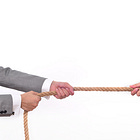
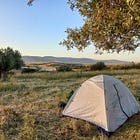

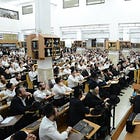



I love this post. Thank you for writing it (and for including my recent post, too). With gratitude and support, Lucy